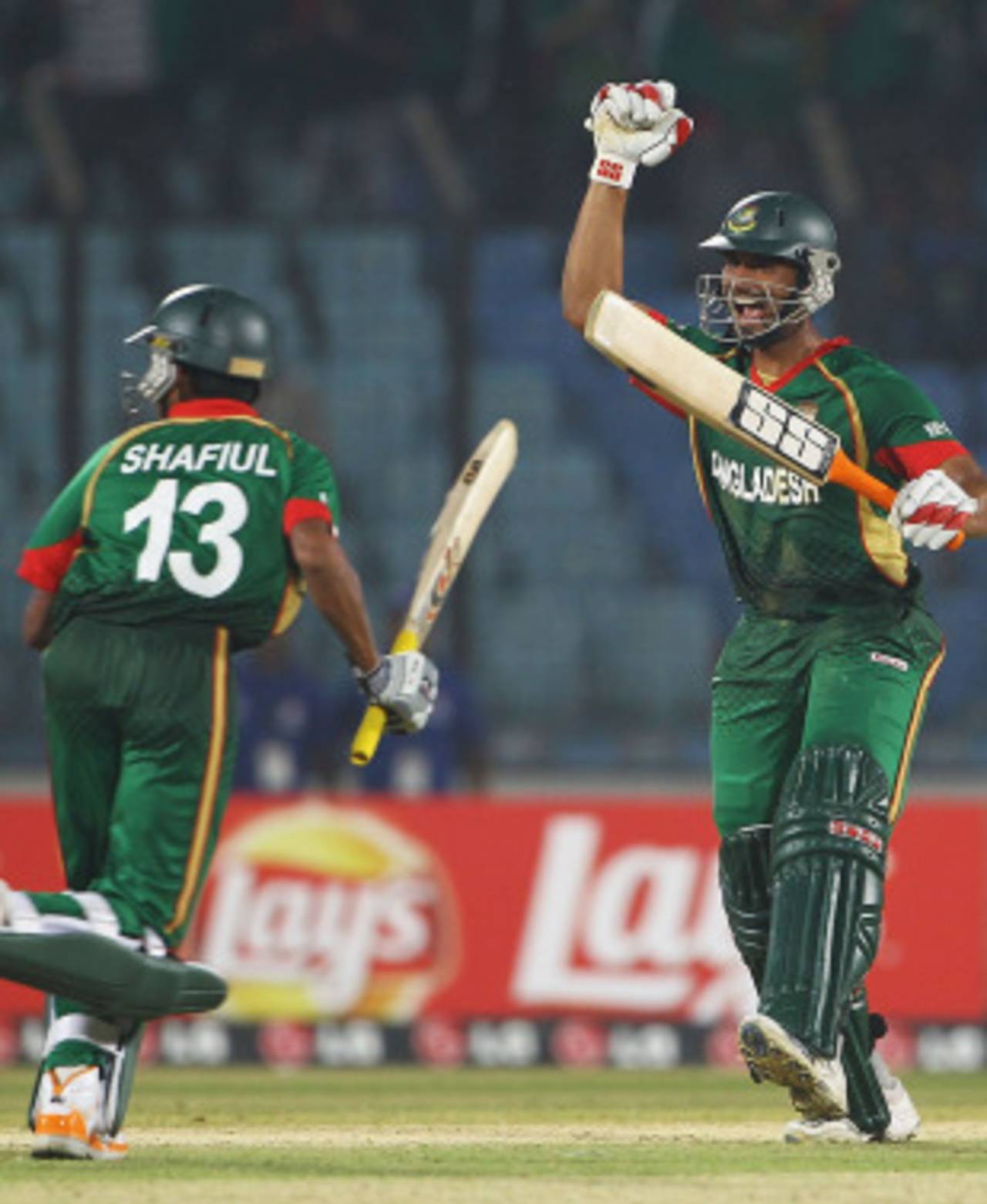Deserting a dream
On March 11, 2011, during the World Cup qualifying round, as Bangladesh stumbled to 169-8 chasing England's 227, several spectators at the Zahur Ahmed Chowdhury Stadium in Chittagong started heading for the exits
Samir Chopra
25-Feb-2013

If you leave too early, you risk missing out on watching your team make a thrilling comeback • Getty Images
On March 11, 2011, during the World Cup qualifying round, as Bangladesh stumbled to 169-8 chasing England's 227, several spectators at the Zahur Ahmed Chowdhury Stadium in Chittagong started heading for the exits. I was watching the game on my desktop machine in my living room; I was accompanied by an American colleague and friend that had stopped by, on my invite, to try and catch a bit of World Cup excitement. He seemed perplexed by their exit, and honestly, so was I. Bangladesh needed 58 runs to win in a little over 10 overs with two wickets in hand. It was unlikely, sure, but it was a World Cup game, only 10 overs were left. Sure, your team had come an absolute cropper in the last game, but surely, it was worth it to hang around and see if they could pull it off, given that they were this close?
Right. Well, we know how that turned out. And those folks in Chittagong that did leave must have wanted, if only they had the ability of professional contortionists, to be able to deliver a swift, painful kick on their own backsides. For nothing is quite as painful as deserting a game, whose eventual resolution is one you craved. You desert a dream in the process. (On these very pages, I have written about my painful decision to abandon India's run chase against Australia at Mohali last year).
The Bangladeshi rush for the exits reminded me of an abandonment with a twist. During the
epic Kirti Azad game at Delhi's Jawaharlal Nehru Stadium in September 1983, I sat in the stands, shell shocked and dismayed at India's collapse to 101-8, chasing 197. Victory seemed unlikely, and to make things worse, it would happen at home against Pakistan. Sitting next to me were a young man and his father. Soon after the eighth wicket fell, the father began pestering his son. It was time to go; the traffic would be bad later; these losers deserved no more of their time. The young man stoutly resisted for a while. But, eventually, an over or so later, he agreed to leave. Father and son departed.
Later, that night, after Kirti Azad and Madan Lal's pyrotechnics had won the game for India, as I rode home in a sweaty, smoky bus, I was haunted by the memory of that young man trying to get his father to stay.
Would he ever forgive the old man? Would this episode occur again in familial conflict? "The last time I listened to you, you made me miss the Kirti Azad match!" I haven't forgotten about it. I'm sure that lad didn't. I just hope it didn't turn him into an embittered rebel.
But the credit for the most catastrophically wrong abandonment must go to Alan McGilvray, the erstwhile doyen of Australian radio commentators. On 14th December 1960, as Australia chased 233 to win against the West Indies at Brisbane, McGilvray decided at lunch the game was heading for a tame draw, and took a flight back to Sydney with Keith Miller, leaving the business of commentary to other ABC commentators. McGilvray later described his decision to leave the Tied Test as the "biggest error of judgment in my life" and never abandoned a match again. (Thanks to Gideon Haigh for this story).
Commitment gets us the good stuff in life; a lesson that sports fans sometimes have to learn the hard way.
Samir Chopra lives in Brooklyn and teaches Philosophy at the City University of New York. He tweets here